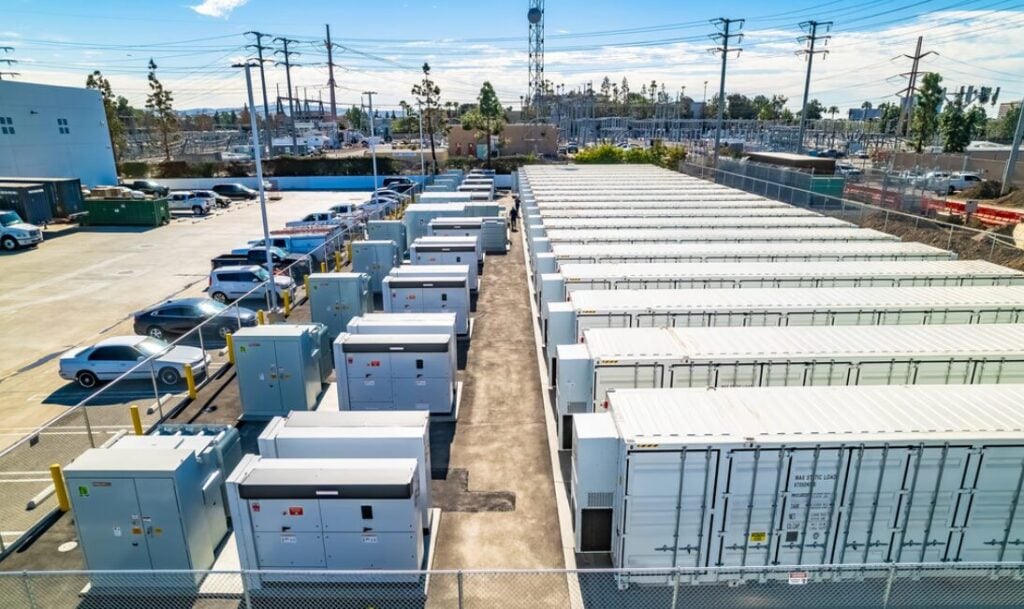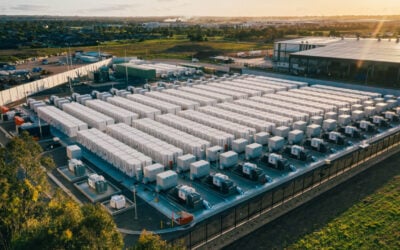
Hecate Energy, via a letter to the New York State Public Service Commission (NYPSC) has cancelled its 650MW Swiftsure battery energy storage system (BESS) in Staten Island, New York.
The letter sent to the NYPSC was from Hecate Grid Swiftsure LLC, also referred to as Hecate, throughout the letter.
Hecate Energy owns the project through the Hecate Grid Swiftsure LLC entity, which causes some confusion about whether the owner was Hecate Grid/Fullmark Energy or Hecate Energy.
Energy-Storage.news contacted Fullmark Energy for comment, and a company representative noted that the project belongs to Hecate Energy. Hecate Grid is a 2018 spinout from developer-operator Hecate Energy.
Try Premium for just $1
- Full premium access for the first month at only $1
- Converts to an annual rate after 30 days unless cancelled
- Cancel anytime during the trial period
Premium Benefits
- Expert industry analysis and interviews
- Digital access to PV Tech Power journal
- Exclusive event discounts
Or get the full Premium subscription right away
Or continue reading this article for free
However, in May Hecate Grid rebranded to Fullmark Energy to represent its status as a fully integrated energy storage company.
Additionally, in April, Assemblyman Sam Pirozzolo, Senator Andrew Lanza, Assemblyman Mike Reilly, and Council Member David Carr sent a letter to the NTPSC to deny Hecate Grid Swiftsure’s extension request to file project documents.
The announcement of that letter mistakenly refers to Hecate Grid as the project owner.
The letter from Hecate Grid Swiftsure cancelling the project states, “By this letter, we, on behalf of Petitioner, hereby notify the Commission that plans to construct the BESS have been terminated. As of the date of this letter, no part of the BESS has been constructed.”
Specific reasons for the project’s cancellation are not listed. BESS projects have received opposition in Staten Island, and there are challenges to developing in the New York Independent System Operator (NYISO) market.
On the same day in April, the Staten Island Borough President declared that his office would file a lawsuit to stop BESS project development within his area, while the Oyster Bay Town Board on Long Island voted to prolong a moratorium on BESS facility construction.
In August, US Environmental Protection Agency (EPA) Administrator Lee Zeldin addressed BESS fire safety concerns at a press conference held on Long Island, as the agency issued a set of new safety guidelines.
Earlier this year, the NYPSC approved the draft Bulk Energy Storage Program Implementation Plan filed by the New York State Energy Research and Development Authority (NYSERDA).
The plan details the proposed structure of the Index Storage Credit Mechanism. This is a procurement programme for large-scale energy storage facilities where the state guarantees revenues at a pre-agreed strike price in the wholesale market.
In an interview with ESN Premium in August, Chris McKissack, CEO of Fullmark, said the following about developing BESS projects in New York:
“This comes partly from my personal experiences in New York, and then also, Fullmark’s experiences before I joined. One big lesson learned from New York is that it doesn’t necessarily pay to be an early mover. They’re still trying to figure out how to make it work for storage and for other generator types.”
McKissack continued, “I think they will get there, but I don’t know when. That’s a challenging market to time. The other thing that’s really challenging about New York is that one of the upside scenarios for battery storage in New York was going to be the vast amounts of offshore wind that was planned to come in the area. Certainly, we’ve seen headwinds to say the least there.”
Underscoring the challenges of developing in the state, McKissack noted that Texas and California “remain the most stable profiles for energy storage,” and highlighted PJM as “an exciting market.”
This article has been amended to accurately reflect the project’s ownership.





